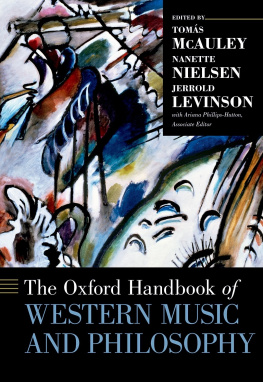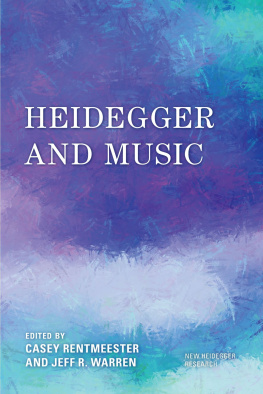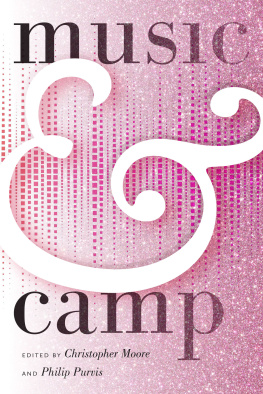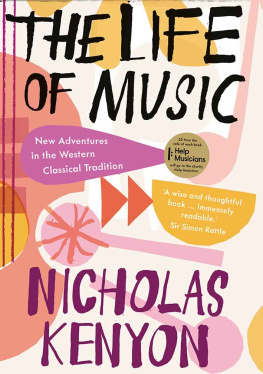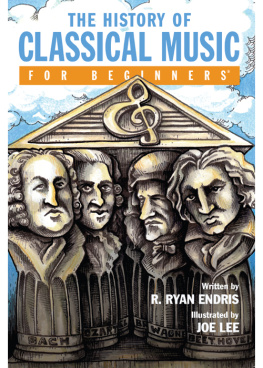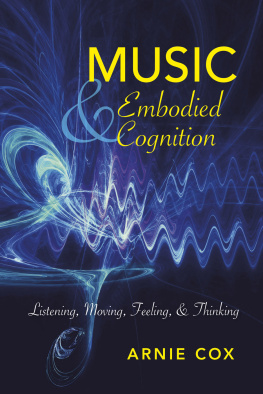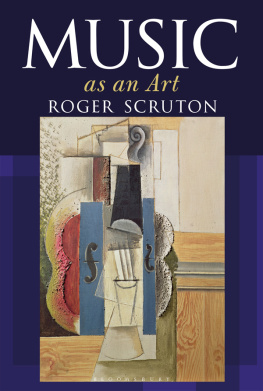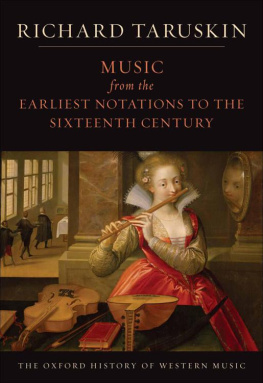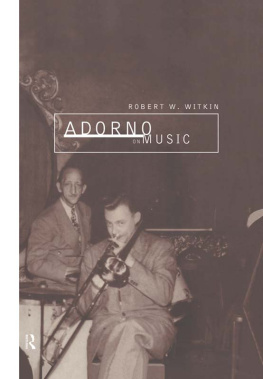Cover
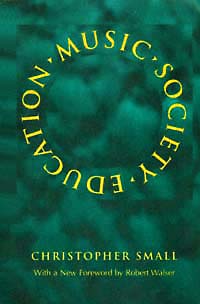
| title | : | Music, Society, Education |
| author | : | Small, Christopher. |
| publisher | : | Wesleyan University Press |
| isbn10 | asin | : | 0819563072 |
| print isbn13 | : | 9780819563071 |
| ebook isbn13 | : | 9780585377032 |
| language | : | English |
| subject | Music--Social aspects, Music--Instruction and study, Music--Philosophy and aesthetics. |
| publication date | : | 1996 |
| lcc | : | ML3795.S55 1996eb |
| ddc | : | 780/.7 |
| subject | : | Music--Social aspects, Music--Instruction and study, Music--Philosophy and aesthetics. |
Page i
MUSIC, SOCIETY, EDUCATION
Page ii
MUSIC / CULTURE
A series from Wesleyan University Press
Edited by George Lipsitz, Susan McClary, and Robert Walser
Published titles
My Music
by Susan D. Crafts, Daniel Cavicchi, Charles Keil,
and the Music in Daily Life Project
Running with the Devil:
Power, Gender, and Madness in Heavy Metal Music
by Robert Walser
Subcultural Sounds:
Micromusics of the West
by Mark Slobin
Upside Your Head!
Rhythm and Blues on Central Avenue
by Johnny Otis
Dissonant Identities:
The Rockn Roll Scene in Austin, Texas
by Barry Shank
Black Noise:
Rap Music and Black Culture in Contemporary America
by Tricia Rose
Club Cultures:
Music, Media and Subcultural Capital
by Sarah Thornton
Music, Society, Education
by Christopher Small
Popular Music in Theory:
An Introduction
by Keith Negus
Page iii
MUSIC, SOCIETY, EDUCATION
Christopher Small

Page iv
UNIVERSITY PRESS OF NEW ENGLAND
publishes books under its own imprint and is the publisher for
Brandeis University Press, Dartmouth College, Middlebury
College Press, University of New Hampshire, Tufts
University, Wesleyan University Press,
and Salzburg Seminar.
WESLEYAN UNIVERSITY PRESS
Published by University Press of New England,
Hanover, NH 03755
1977, 1980 by Christopher Small
Foreword to the 1996 edition 1996 by Robert Walser
All rights reserved
Wesleyan University Press paperback edition 1996.
First published in Great Britain in 1977
by John Calder (Publishers) Ltd.
Printed in the United States of America 5 4 3 2 1
Library of Congress Cataloging-in-Publication Data
Small, Christopher, 1927
Music, society, education / by Christopher Small
p. cm.
"Wesleyan University Press."
Originally published: London : J. Calder, 1977.
Includes bibliographical references and index.
ISBN 0-8195-6307-2 (pa : alk. paper)
1. Music and society. 2. MusicInstruction and
study. 3. MusicPhilosophy and aesthetics. I. Title.
ML3795.S55 1996
780'.7dc20 96-20010

Page v
In memory of my mother and father
Page vi
The imagination, therefore, is much more than the imaginary. It embraces the entire existence of man. For we do not only respond with feeling or admiration, but participate, through the symbols offered by a work of the imagination, in a potential society which lies beyond our grasp.
Jean Duvignaud
The Sociology of Art
Page vii
CONTENTS
| Foreword to the 1996 Edition | ix |
| Introduction | 1 |
| 1 | The Perfect Cadence and the Concert Hall | 7 |
| The music of Post-Renaissance Europe |
| 2 | Music Outside Europe | 34 |
| Two Non-European musical cultures |
| 3 | The Commanding of Nature | 60 |
| The science of Post-Renaissance Europe |
| 4 | The Scientific World View | 80 |
| European culture defined by its music and its science |
| 5 | The Vision of a Potential Society | 97 |
| Twentieth-century music in revolt |
| 6 | A Different Drummer | 129 |
| The music of the United States |
| 7 | Plus a Change | 160 |
| The musical scene today |
| 8 | Children as Consumers | 182 |
| Education and music in education as they are |
| 9 | Children as Artists | 206 |
| Music and music in educationa model for change |
| Index | 230 |
Page ix
FOREWORD TO THE 1996 EDITION
Each time I scan the concert listings of the Los Angeles Times, I am reminded of Christopher Small's brilliantly wide-ranging meditations on contemporary musical life. According to the Times, performances can be divided into three categories: Jazz, Pop/Rock, and Music. That certain kinds of music should be split away from Music must seem perfectly natural to many people, but Small has helped a good number of us to realize how our musical lives are shaped by such conventions. He has been for twenty years our preeminent analyst of the values and habits of thought that underpin musical experiences. And his readers have found his work to be, more than anything else, enablingof thought, of critique, of connection, and of understanding. This makes it a special pleasure to see Music, Society, Education, the first of his books, back in print after a long period of erratic availability.
Why reprint a twenty-year-old book? Because Small's views are still news. Not only has this volume found a home in many classrooms, but anyone who cares about music can profit from reading it. Many of its themes anticipated recent work in cultural studies, as well as that diverse body of work that is called (by its detractors) the new musicology. For example, think of debates over authenticity in early music, where the most radical arguments are foreshadowed by Small's suggestion that slavish imitation of the past signals a failure of nerve in the present. Consider how Small's investigation of music's social meanings offers a bridge between cultural musicology and enthomusicology, mounting challenges to our thinking about the significance of music that are far from having been met. We must also credit him with having led us to be more aware of the ritual dimensions of classical performances, and of how musical meanings are changed by processes of textualization and canonization.
If, as historian Howard Zinn has claimed, academic disciplines keep scholars narrowly specialized so that they won't see the big picture and cause trouble, Small is the perfect example of an un-disciplined scholar. He doesn't fit the traditional profile of a musicologist or an ethnomusicologist, and his ideas about schooling could not be further from the music appreciation mission that typifies music
Next page

